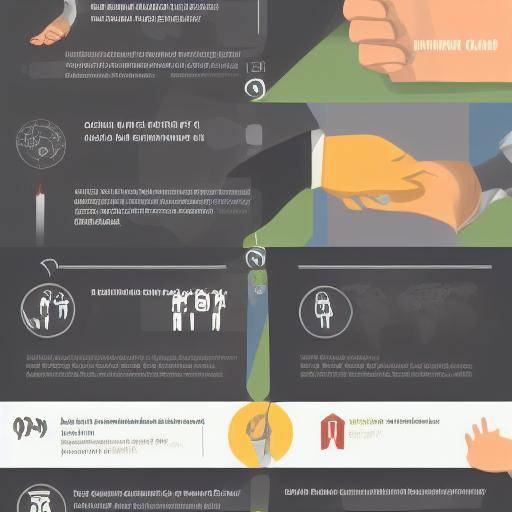
Entrepreneurs and entrepreneurs often underestimate the initial costs when starting a business. Lack of precision in financial assessment and planning can lead to harmful consequences and ultimately result in business failure. In this article, we will explore common mistakes by underestimating the initial costs of a business, and offer practical advice for more accurate evaluation and effective financial planning.
Introduction
In undertaking a new business, it is essential to understand and anticipate the costs associated with its start and operation. Underestimating these costs can trigger a series of financial challenges that can be difficult to overcome. In this section, we will explore the most common mistakes that entrepreneurs make when underestimating the initial costs of a business.
Common Mistakes in Underestimating Initial Costs
1. Lack of Precision in Initial Assessment
One of the most common mistakes in underestimating the initial costs of a business is the lack of precision in the initial evaluation. Many entrepreneurs estimate costs based on vague assumptions or past experiences, which can lead to significant errors. It is crucial to conduct a detailed and accurate assessment of all initial costs, including start-up costs, asset acquisition, marketing costs, operating costs and contingency reserves.
2. Off on Long-Term Financial Planning
Another common mistake lies in neglecting long-term financial planning. By focusing only on immediate costs, entrepreneurs can ignore future costs that will be crucial to business growth and sustainability. The lack of cost assessment such as expansion, recruitment of additional staff, technological updates and long-term marketing can result in a shortage of funds in later stages of the business.
Steps for a Precise Assessment and Effective Planning
1. Perform a Detailed Analysis of All Initial Costs
It is essential to conduct a detailed analysis of all initial costs, including both business start-up and operating expenses during the first months or years. This should range from space rental, equipment costs, licenses and permits to payroll, supplies and marketing. Precision in this evaluation is essential to avoid unpleasant financial surprises.
2. Consider Alternative Scenarios and Reserves for Imprevistos
In addition to estimating initial costs, it is important to consider alternative scenarios and establish contingency reserves. The uncertainty inherent in starting a business requires entrepreneurs to be prepared to face unexpected situations, such as income delays, market demand changes or unforeseen costs. Having financial reserves can help mitigate the impact of these unexpected events.
3. Consultation with Financial and Business Experts
Finding professional advice is a smart strategy when conducting financial assessments and business planning. Financial and business experts can offer valuable insights and provide guidance on aspects that entrepreneurs might overlook. Their expertise and experience can be critical for accurate evaluation and effective planning.
Conclusion
In short, underestimating the initial costs when starting a business may have a significant impact and ultimately prevent business success. Accuracy in evaluation and financial planning, together with consideration of alternative scenarios and contingency reserves, are critical to mitigating these risks. By avoiding common mistakes and following effective evaluation and planning practices, entrepreneurs can establish a solid foundation for the growth and sustainability of their businesses.
Frequently asked questions
What are the main initial costs of a business that are often underestimated?
Some of the initial costs that are often underestimated include rental of space, equipment and technology costs, legal and licensing costs, as well as marketing and advertising costs. It is essential to consider each of these aspects in a detailed way to avoid unpleasant financial surprises in the future.
Why is it important to consider alternative scenarios when evaluating initial costs?
Considering alternative scenarios when evaluating initial costs allows entrepreneurs to prepare for unforeseen situations. This practice gives them the flexibility to adapt to market changes, income delays or other unexpected events, thus avoiding negative financial impacts on the business viability.
How does the lack of precision affect the initial assessment of the financial health of a business?
Lack of precision in the initial assessment can lead to inadequate distribution of financial resources, resulting in a shortage of funds in critical areas of the business. This can lead to difficulties in meeting financial commitments, delays in meeting targets and limiting investment capacity in business growth and expansion.
What is the importance of establishing contingency reserves when starting a business?
The establishment of unforeseen reserves when starting a business provides a financial mattress that allows unforeseen contingency without compromising the stability of the business. This provides peace of mind to entrepreneurs and gives them the ability to navigate the financial challenges with greater confidence and security.
How can financial and business experts contribute to a more accurate assessment of initial costs?
Financial and business experts have extensive experience in financial assessment and planning. By providing expertise, external perspectives and expert guidance, entrepreneurs can help identify critical aspects that might have been overlooked by providing a more comprehensive and accurate view of the costs involved in the start of the business.
What role does long-term financial planning play in business success?
Long-term financial planning is crucial for business success, as it allows to identify and anticipate future business financial requirements. This gives entrepreneurs the ability to set realistic financial targets, make strategic investments and adapt to changes in the business environment, thus ensuring the sustainability and continued growth of the business.
With these answers to common questions related to "precision", "evaluation" and "planification", we hope to have clarified the doubts that may arise when dealing with these fundamental aspects when starting a business.






















































